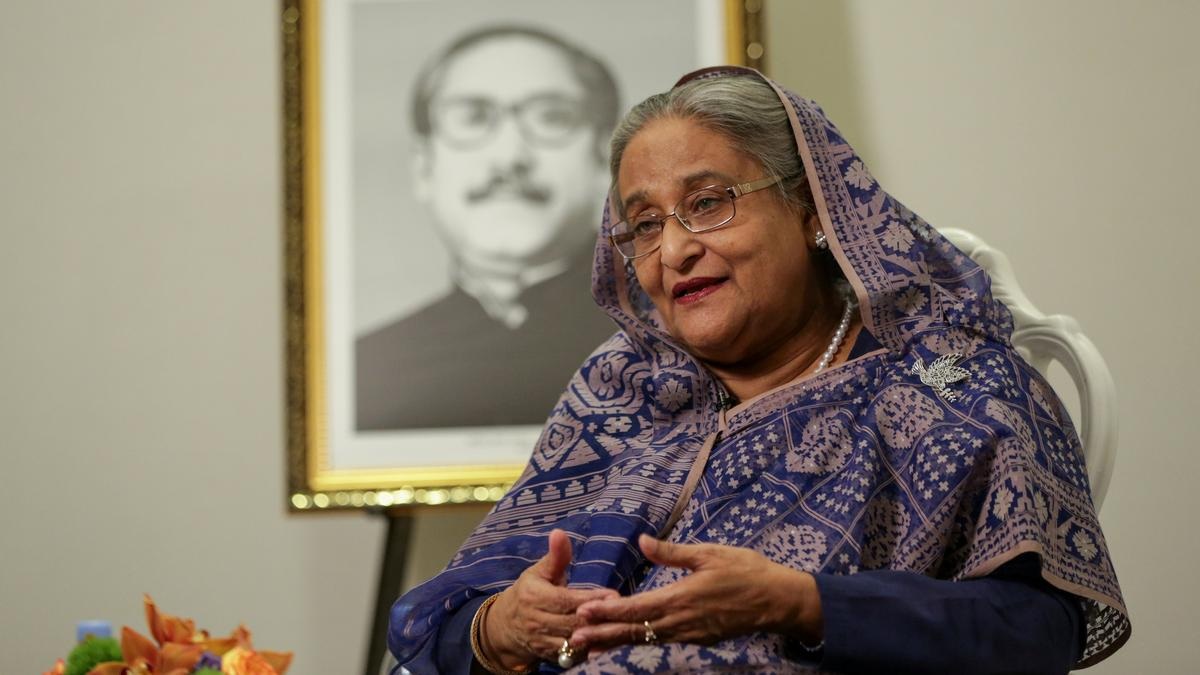In a dramatic turn of events that has captivated attention across South Asia and beyond, Bangladesh’s exiled former Prime Minister Sheikh Hasina has been sentenced to six months in prison for contempt of court.
The ruling was issued by the country’s International Crimes Tribunal (ICT) on Wednesday, July 2, 2025, signaling a new chapter in the country’s unfolding political upheaval.
The decision was delivered by a three-judge panel led by Justice Golam Mortuza Mozumder.
It also marks the first formal conviction against Hasina amid a string of charges pending against her.
The sentence will only be enforced upon her arrest or voluntary return to Bangladesh, according to Chief Prosecutor Muhammad Tajul Islam.
Hasina, once one of South Asia’s most powerful female leaders, fled to neighboring India in August last year following a massive student-led uprising that ultimately led to the fall of her government.
Since then, she has remained in self-imposed exile, even as legal proceedings have intensified in her absence.
The contempt of court charge arose from a controversial audio clip in which Hasina allegedly stated, “There are 227 cases against me, so I now have a license to kill 227 people.”
The statement, confirmed as authentic by a government forensic report, was deemed a direct insult to the judiciary and prompted swift legal action.
Alongside Hasina, Shakil Akand Bulbul, a prominent figure in the now-banned student wing of the Awami League, known as the Chhatra League, was handed a two-month sentence in the same case.
Ironically, the International Crimes Tribunal that has now turned against Hasina was originally formed in 2010 by her own administration.
At the time, its mission was to investigate and prosecute war crimes related to Bangladesh’s bloody 1971 independence struggle.
Today, under the interim leadership of Nobel Peace Prize laureate Muhammad Yunus, the ICT has been restructured to investigate alleged human rights abuses and corruption tied to Hasina’s administration.
Three arrest warrants have now been issued against the former leader.
These include for alleged crimes against humanity linked to her government’s violent suppression of the protests that led to her ousting.
The Awami League, the political party Hasina led for decades, remains banned under the current transitional authority.
Meanwhile, former senior officials from her administration are facing trial for various charges ranging from graft to abuses of power.
Hasina’s supporters, both within Bangladesh and among the diaspora, claim that the legal actions are nothing more than a politically motivated campaign.
They claim it is designed to erase her legacy and crush opposition voices.
Hasina’s supporters argue that the tribunal’s recent direction contradicts its original purpose and undermines the democratic gains made under her leadership.
However, the caretaker government insists that the trials are part of a wider mission to restore public faith in institutions and promote accountability in governance.
“This is not a witch hunt,” an official close to the tribunal stated. “This is about healing a wounded nation and rebuilding trust in our democracy.”
For the African audience and broader global observers, Bangladesh’s situation resonates with familiar themes:
- the struggle between political legacy and accountability,
- the use of legal frameworks in post-conflict nation-building, and,
- the dangers of institutions being manipulated for personal or political gain.
Much like in parts of Africa where leaders have faced prosecution for corruption or human rights abuses, Bangladesh’s political turbulence serves as a cautionary tale.
It underscores the delicate balance between justice and political stability, and the often-blurred lines between retribution and reform.
The road ahead remains uncertain.
With Hasina still in exile and her supporters mobilizing internationally, Bangladesh is at a pivotal moment.
Whether the country can navigate this transition toward transparency and reconciliation, or descend further into political fragmentation, will depend largely on the impartiality of its legal institutions and the resilience of its civil society.
As the world watches, Bangladesh’s fate may hold valuable lessons for other nations grappling with how to confront the past while forging a more accountable future.







